Author Archives: Guest Blogger
December 6, 2013 by Guest Blogger
Orthodox Judaism and the F Word

by Jina Davidovich
I was educated to believe that “Feminism” was the F word. I was raised to think that, while women should excel in the classroom and the boardroom, they should ultimately succumb to their inextricably feminine natures and center their lives on the home. At a young age it seemed that even the rich textual tradition at the heart of Jewish practice vindicated these ideas: Eve sought knowledge and was punished with pain, Tamar was forced to seduce her father-in-law, Judah, to pursue justice, and for centuries women were prohibited from assuming any leadership positions within the Jewish community. To be honest, a structure which did not permit women to achieve success – professional, personal, and spiritual – on the same level as their male counterparts never sat well with me. Despite my deep commitment to the Orthodox Jewish community, feminism was never the “f word” for me – it connoted a different f-word: freedom. Feminism is a philosophy that raised me up and made me a human, rather than just a future wife or mother.
- 2 Comments
August 14, 2013 by Guest Blogger
Priced Out of Participation
by Marcia Cohn Spiegel
 I just finished reading about the “Lean In” era and remembered that in the summer of 1980 there was a feminist preconference for CAJE (led by Sue Levi Elwell, Paulette Benson and myself). The main concern of the Jewish women educators and professionals who attended was how, on the salary they were paid and the hours that they worked, they could afford child care, religious school, camp and synagogue membership.
I just finished reading about the “Lean In” era and remembered that in the summer of 1980 there was a feminist preconference for CAJE (led by Sue Levi Elwell, Paulette Benson and myself). The main concern of the Jewish women educators and professionals who attended was how, on the salary they were paid and the hours that they worked, they could afford child care, religious school, camp and synagogue membership.
They were concerned that their work as Jewish professionals would not allow them to be part of the organized Jewish community. They were priced out of participation.
So what else is new?
- No Comments
February 11, 2013 by Guest Blogger
What’s a Friend to Do?
Dispatches from the New York Jewish Film Festival
 Light up a cigarette. Or, better yet, have some charming, young male student acolyte do it for you. There will be smoke in your eyes after you see “Hannah Arendt,” the 2012 German biopic directed by feminist auteur Margarethe von Trotta and starring Barbara Sukowa as Arendt and Janet McTeer as her dear friend Mary McCarthy.
Light up a cigarette. Or, better yet, have some charming, young male student acolyte do it for you. There will be smoke in your eyes after you see “Hannah Arendt,” the 2012 German biopic directed by feminist auteur Margarethe von Trotta and starring Barbara Sukowa as Arendt and Janet McTeer as her dear friend Mary McCarthy.
The film’s New York premiere closed the New York Jewish Film Festival to a full house Jan. 24. Its commercial run opens at the Film Forum in New York May 29, followed by national release.
“Arendt” is a sexy film which wants to be a film about ideas.
Retelling the well-known story of the furor created by Arendt’s Eichmann in Jerusalem: A Report on the Banality of Evil (1963), “Arendt” does so through the lens of friendship and its limits, shot with a “Mad Men” aesthetic in Manhattan and Jerusalem. Dialogue is in English and German, with subtitles as needed.
Arendt, a German-Jewish refugee from Nazism, rose to prominence among the largely Jewish and male group of New York public intellectuals with The Origins of Totalitarianism (1951), a penetrating study of Nazism, Stalinism, and the modern state. She taught at the New School for Social Research and at the University of Chicago. Eichmann, Arendt’s report of the 1961 trial, set these intellectuals on edge because of the work’s charge that Jewish leaders had collaborated with the Nazis in the destruction of the Jews and that Eichmann was not a murderous anti-Semite. Arendt depicted him as an ordinary man following bureaucratic orders. His compliance was evil’s “banality.”
- No Comments
May 9, 2012 by Guest Blogger
My Writing Roots in Porn Lit
By Anonymous
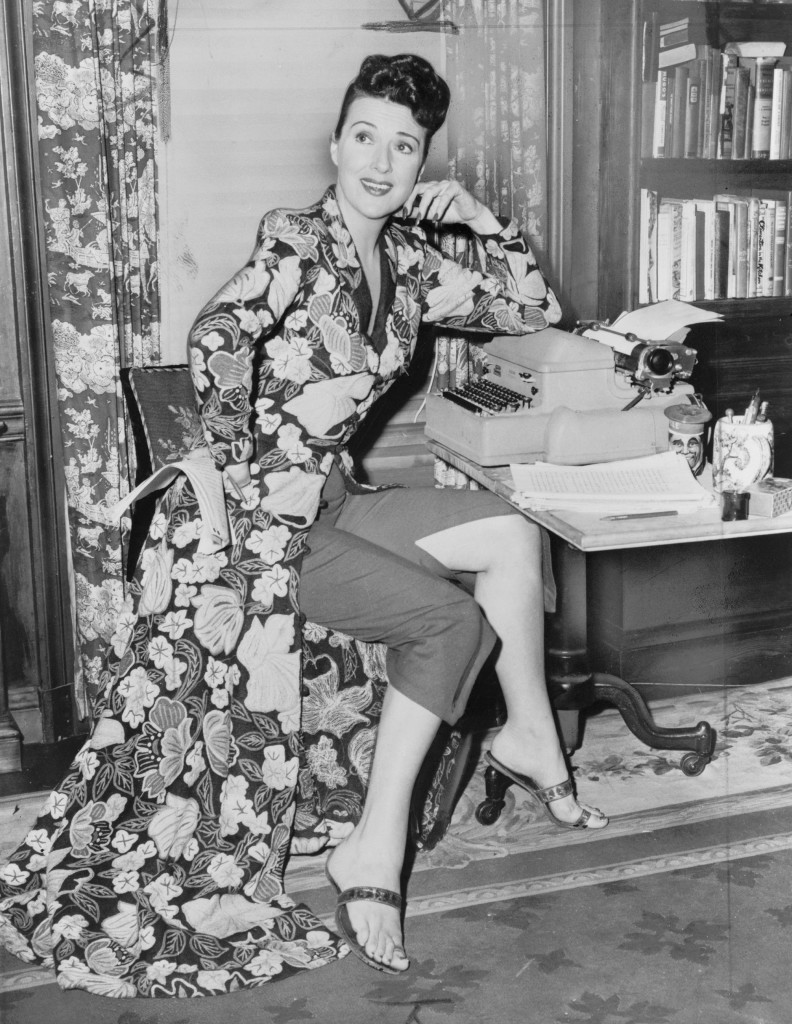
Gypsy Rose Lee seated at typewriter/ World Telegram & Sun photo by Fred Palumbo via Library of Congress.
The year was 1979. Ronald Reagan was in the White House, Leonid Brezhnev was in the Kremlin, and I had just tumbled, fresh-faced and clueless, from the idyllic confines of a Seven Sisters college in the mid-Hudson valley. I had a plan–graduate school at Columbia University in September–and my very first apartment, a shabby walk-up on 107th Street and Amsterdam Avenue, then a sketchy neighborhood just south of Harlem. But I needed an income, so I found a job as a waitress. On my first day I inadvertently charged one customer $14.60 for an iced coffee, splattered another with gobs of cheesecake from the slice I dropped, and was fired by the end of my shift. Time for plan B. I pored over the want ads in the Village Voice. Telemarketer? Nurse’s aide? Nothing clicked until I read this one:
STAFF WRITER
ADULT FICTION
I called the number and spoke to a woman who was far more interested in my typing skills than my literacy. She told me to write the first chapter of School Girl Crush, a playful, Sapphic romp set in an East Coast boarding school. “It should be around 20 pages long,” she said. “And it shouldn’t take more than four hours.” I’d written a lot of term papers over the past few years, but I had never churned out 20 pages in four hours. Then I thought: East Coast? Girls’ school? Hey, I was a natural. I conjured my own college campus: the scenic pond—where I had three characters go skinny dipping—and the gym’s communal showers—where two others had a passionate, lesbian encounter—and pretty soon, the chapter was written. The next day, I sat across a desk from Flo, a zaftig middle-aged woman with a head of corkscrew ringlets and a big, toothy smile. As she read my chapter, the smile got even bigger. “This,” she said, “is perfect. When can you start?”
- No Comments
May 8, 2012 by Guest Blogger
A Conversation with Alix Kates Shulman
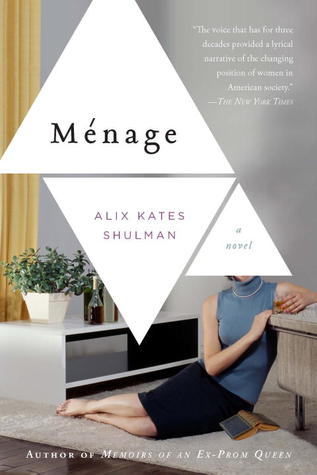
Alix Kates Shulman has been a passionate feminist voice for over 40 years, bringing to light questions of marital parity and other front-line issues of women’s rights in her memoirs and other nonfiction. Beginning with her first novel, the now- classic Memoirs of an Ex-Prom Queen, Shulman’s fiction has been praised for its wit, insight, and compassion. She is a past contributor to Lilith—the 1993 article “Gentiles and Jews at the Hop” and, most recently, an excerpt from her 2008 memoir To Love What Is. Readers will welcome this spring’s back-to-back publications, A Marriage Agreement and Other Essays and the novel Menage,“a brilliantly wry and entertaining comedy of desires” (Booklist), that is “delightfully wicked” (Kirkus).
In your sharp and funny new novel Ménage, Heather McKay is a stay-at-home mother and, for most of the novel, a would-be writer who puts up with her husband’s affairs in exchange for the extravagant and trouble-free life he gives her. Yet when Mack brings a notable dissident writer to live with them, she is bold in her seduction of him, as if she has nothing to lose. What drives her?
What drives her is a combination of literary ambition and ambivalence about the status of stay-at-home moms. Also, since Mack roams freely in the world while she’s lonely at home, she’s angry at him for his affairs and feels no qualms about having one herself. Ambivalence concerning both stay-at-home and working mothers is something that does not go away—note its renewed flare-up over Ann Romney. A recent Nation column by Katha Pollitt has the best analysis of that conundrum I’ve seen in ages.
- No Comments
April 23, 2012 by Guest Blogger
Green? Or Greeneh? Some Earth Week Reflections
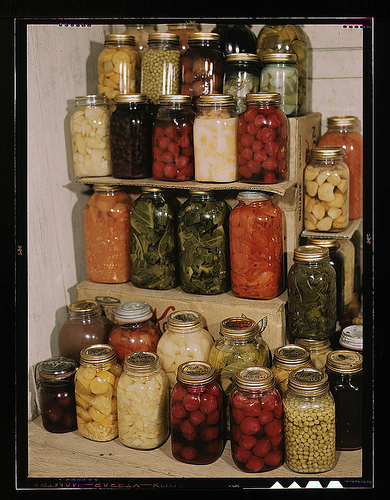
Photo via Library of Congress Flickr stream
Growing up, green was the color of the aluminum siding on our house and of our painted garage, teeming with a full assortment of scrap—wood, metal, plastic, heavy paper and anything else that might somehow serve a future purpose. Green was the color of the lawn I often mowed, watered only when needed and early in the morning. My Girl Scout uniform was green. And so were the glasses filled with warm tea left out every morning for me and my sisters, the intentional love-filled leftovers from the big stove-cooked pot of tea our Dad filled his Thermos from each day before heading to his job at Gleason Works in our boat-sized American-made Chevy Impala, which he could fix himself.
Green was a shade of envy, too. Envy of the kids whose sandwiches were packed in throwaway Ziploc bags instead of bulky Tupperware that had to be schlepped home. Envy of all the other moviegoers, who got to socialize while waiting on line for buttered popcorn while we rustled through an over-stuffed tote to access a re-used plastic bag full of white kernels, air-popped at home. Envy of my friends whose families hired plows to remove their snow while we bundled up in hand-me-down snowsuits and shoveled all day.
It was envy of my classmates and friends whose parents had gone to college, didn’t have accents and weren’t mistaken for grandparents… and it was envy of those who had grandparents.
- No Comments
March 2, 2012 by Guest Blogger
An interview with Lilith magazine’s Editor in Chief
Cross-posted with Kosher Salt.
Anyone who read Freakonomics remembers the chapter on how a person’s name can pre-determine their future. If that frightening piece of incredible parental pressure got you thinking about the name game, Susan Weidman Schneider, editor of Lilith magazine, has plenty more to say on what’s in a name and the latest issue of the mag.
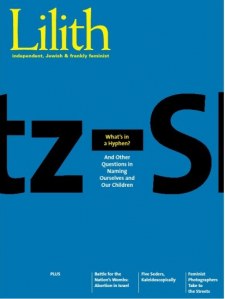
KS: What’s the greatest perk/biggest obstacle in working as editor of an independent, Jewish and frankly feminist magazine?
SWS: Editing Lilith magazine, now celebrating its 35th year, is a treat. The writers are wonderful, the ideas new and stimulating, and the end product is, I hope, insightful and always a good read—whether it’s in print, on the web via our soon-to-appear digital edition, or on the lively Lilith blog.
KS: What do you think is the most impactful topic that Lilith has covered?
SWS: That’s a tough one. The major issues Lilith has opened up have been topics like violence in Jewish families; Jewish women’s philanthropy and our relationship to money; Jewish hair—a sellout issue by the way; rabbinic sexual misconduct; new rituals and celebrations for the Jewish calendar and for the landmarks of our lives.
The last couple of Lilith salons at Sixth & I were really dynamite, and they dealt with cover stories that, like the what-we-call-ourselves story in Lilith’s current issue, resonate in our lives. One salon had to do with an article on breaking up over food. We spent about three hours in spirited discussion about what we eat, why it can sometimes be schismatic, what food represents in a relationship, and more. The second salon focused on what we wear. You can imagine! The talk ranged from our favorite garments to how we want to present ourselves to the world as feminists, as Jews, as professionals. Clothing is a powerful signifier, and we really mined that territory in our conversation.
- No Comments
February 17, 2012 by Guest Blogger
Spinoza and Cherry Ames
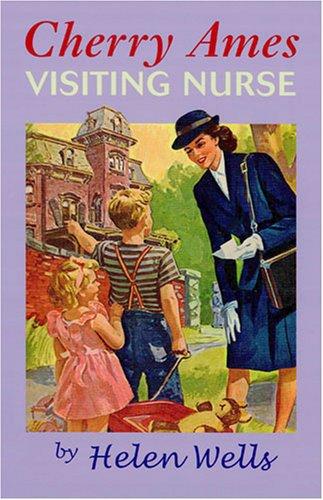 Like so many people who harbor secret sins and obsessions, I thought I was alone. And then one day, in the midst of a conversation, no doubt about high-level theological issues (or maybe where to go for lunch), with my friend and rabbinic colleague, Leah, I blurted it out: “did you ever read Cherry Ames when you were young?” She looked startled for a moment, and then responded, “I LOVED Cherry Ames!” Turns out, she and I are not the only ones who did (and do).
Like so many people who harbor secret sins and obsessions, I thought I was alone. And then one day, in the midst of a conversation, no doubt about high-level theological issues (or maybe where to go for lunch), with my friend and rabbinic colleague, Leah, I blurted it out: “did you ever read Cherry Ames when you were young?” She looked startled for a moment, and then responded, “I LOVED Cherry Ames!” Turns out, she and I are not the only ones who did (and do).
When I was a child, Cherry Ames was a favorite. Although I also read the Bobbsey Twins and Anne of Green Gables series, Cherry was the standout. Was it her black curly hair (like mine?) Was it her feisty independence? Was it her ability to solve every problem, not only of the medical variety, but mysteries of every kind? Was it her cute bedroom furniture in her home town of Hilton (Illinois)? Although I never expressed an interest in being a nurse, the Cherry Ames series (23 volumes in all), which portrayed a young woman who seemed to have a new doctor “suitor” in every book, yet always moved on to a new job leaving the would-be boyfriend behind, surely must have had some career-inspiring influence on me.
Somehow, unlike my Pee Wee Reese doll, several of my Cherry Ames books survived through adulthood. And I managed to find the remaining ones in second-hand bookstores and eventually on the Internet.
- 10 Comments
February 7, 2012 by Guest Blogger
Peach Fuzz Lishma (for its own sake):(“Peaching, Not Preaching”)
 Who picks peaches in August? Certainly not people like me, a rabbi who always anticipated the Jewish High Holidays by beginning to think about writing sermons as early as May. And by August – don’t ask!
Who picks peaches in August? Certainly not people like me, a rabbi who always anticipated the Jewish High Holidays by beginning to think about writing sermons as early as May. And by August – don’t ask!
But this year is different – now I’m semi-retired (and my husband retired 6 months earlier) and we are out on a weekday (!) in August picking peaches at Larriland Orchard in the countryside not far (but very far psychologically!) from D.C. Perfect sunny day, not humid, breathable air unlike much of the rest of the summer.
The two young women who are handing out the baskets for peach retrieval explain how to select the best peaches. No green on the flesh, a little hard (they’ll ripen in 3-5 days), these rows over here, not the ones farther back. For a born-and-bred city girl like myself, these directions are invaluable. And next to apples (for which I’ll return in a month), peaches are the easiest fruit to pick. The basket fills quickly, long before I’m tired or bored.
As we return to the vending stand to pay for our peaches, we find the two young women (interns? members of the family?) discussing the problem of their sensitivity to peach fuzz, how their constant exposure causes a kind of allergic reaction. Who knew?
Returning to the car, I begin contemplating this phenomenon, heretofore unbeknownst to me. Peach fuzz… the dark side of nature… environmental hazards?.. and suddenly, I realize what I’m doing. I’m thinking “sermon”; how can I possibly use this anecdote in a sermon?
- 7 Comments
January 26, 2012 by Guest Blogger
Beit Shemesh, Religious Extremism, and the Dignity of Women: Some Lessons from History
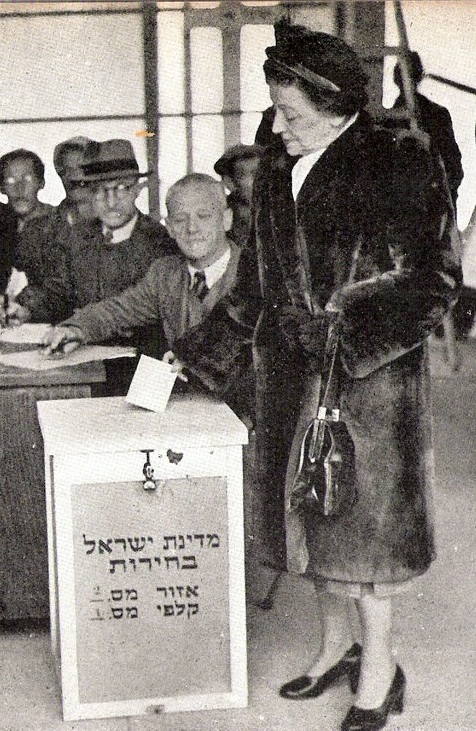
Vera Weizmann voting in Israel's first elections
The recent contretemps in Beit Shemesh riveted the Israeli public and brought worldwide attention to the misogynistic treatment accorded women in the public square by certain sectors of ultra-Orthodox Israeli society. As is by now well-known, some ultra-Orthodox Jews there hurled insults and engaged in bullying an eight-year-old Orthodox girl named Naama Margolese for dressing “immodestly” on her way to school. These same Jews also rioted when public street signs situated in an area inhabited by a population of ultra-Orthodox, Orthodox, and secular Jews that instructed women to dress according to their particular standards of modesty were removed. In recent months, ultra-Orthodox sensibilities have also led to the creation of bus routes where women are segregated and consigned to the back of the bus. On some public ceremonial occasions, women have been prohibited from singing lest their voices offend male listeners and on other occasions when women have sung there has been the spectacle of rabbis placing their hands over their ears to block out their sound. These episodes of Jewish religious extremism unconscionably objectify women and are absolutely incompatible with the democratic and egalitarian values upon which the State of Israel was founded.
This is not the first time such conflict between sectors of the ultra-Orthodox community and the other Jewish citizens of the State of Israel has been manifest. Indeed, such clashes predate the State itself. The ways in which secular and especially Orthodox religious leaders spoke out and acted in those cases provide models for how I would hope that present-day Israeli and Jewish religious leaders would respond to the concerns these events in Beth Shemesh and elsewhere evoke.
- 3 Comments
 Please wait...
Please wait...